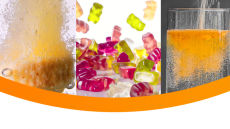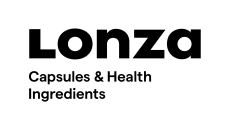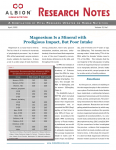Selenium supplements under trial
prostate and lung, as well as immune system health. Many questions
remain and numerous clinical trials are seeking to provide answers.
Selenium enrichment of everyday products has not been successful. In October 2005, Waitrose's selenium enriched bread was removed from UK supermarket shelves due to poor sales. This was blamed on a lack of public awareness of the benefits of selenium. A search in Mintel's Global New Products Database (GNPD) shows that, excluding babyfood, only 10 products launched by August this year contained selenium, and the Waitrose bread was the only one to highlight selenium in its product name. According to Dr Margaret Rayman, a selenium expert based at the University of Surrey in the UK, the fact that because selenium has been around for a long time, and cannot be patented, means companies are not interested in it. The mineral is most commonly derived from the copper smelting industry, for which it is a byproduct. The situation is very different in the supplements market where a significant number of selenium products are available, both in combination with other nutrients and alone, and the European market for selenium supplements is estimated to be worth around €40m. This suggests that there is potential for food makers if they can improve consumer understanding of the mineral's benefits. European selenium levels have been falling since the EU imposed levies on wheat imports from the US, where soil selenium levels are high. As a result, average intake of selenium in the UK has fallen from 60 to 34 micrograms per day. Leading to calls from some to enrich soil and fertilizers with selenium to boost public consumption. The European recommended daily intake (RDI) is 65 micrograms. NutraIngredients.com presents a concise list of ongoing clinical trials around the world, exploring new applications and opportunities. The vast majority of trials are investigating the mineral in cancer applications, particularly prostate cancer. The results of the multi-centre, US-based Selenium and Vitamin E Cancer Prevention Trial (SELECT), are being eagerly awaited by many in both academic and industrial circles. However, the trial is not due for completion until the summer of 2013. In total, four studies are looking at the role of selenium for prevention or inhibition of prostate cancer, and a further five studies are investigating other cancers. Trial Phase Trial Name Intervention Condition Date of completion Location Principle Investigator III (32400 subjects) Selenium and Vitamin E Cancer Prevention Trial (SELECT) Selenium Vitamin E Prostate Cancer July 2013 Multi-centre USA Eric Klein (The Cleveland Clinic) Philip J. Walther (Duke University) III (10400 subjects) Prevention of Alzheimer's Disease by Vitamin E and Selenium (PREADVISE) Selenium Vitamin E Alzheimer Disease August 2013 Multi-centre USA William Markesbery (Sanders-Brown Center on Aging) III Supplemental Selenium and Vitamin E and Pulmonary Function vitamin E (400mg alpha-tocopherol) or selenium (200 ug selenomethionine) or vitamin E plus selenium Lung Diseases July 2008 Multi-centre USA Not available (Part of SELECT) III (1,960 subjects) Selenium in Preventing Tumor Growth in Patients With Previously Resected Stage I Non-Small Cell Lung Cancer Selenium Lung Cancer not available Multi-centre USA Daniel D. Karp (M.D. Anderson Cancer Center) III (465 subjects) Selenium in Preventing Cancer in Patients With Neoplasia of the Prostate Selenium Prostate Cancer not available Multi-centre USA Jim Marshall (Roswell Park Cancer Institute) II Vitamin E, Selenium, and Soy Protein in Preventing Cancer in Patients With High-Grade Prostate Neoplasia Selenium Vitamin E Soy protein Prostate Cancer not available Princess Margaret Hospital, Toronto, Canada Neil Fleshner III (1,600 subjects) Selenium in Treating Patients With Adenomatous Colorectal Polyps Selenium Colorectal Cancer not available University of Arizona, USA Peter Lance 240-600 subjects Selenium and Celecoxib, Alone or in Combination, in Preventing Cancer in Patients With Esophageal Dysplasia Selenium Prevention of Esophageal Cancer not available National Cancer Institute (NCI), USA Sanford Dawsey 510 subjects Selenium in the Prevention of Cancer Selenium chemoprevention of Cancer not available University of Surrey, UK Margaret Rayman II (160 subjects) Selenium in Treating Patients Who Are Undergoing Brachytherapy for Stage I or Stage II Prostate Cancer Selenium Stage I & II Prostate Cancer not available Recruiting Roswell Park Cancer Institute, New York, USA Michael Kuettel 120 subjects Selenium Supplementation in COPD Patients Selenium COPD CVD September 2007 McMaster University, Canada Marek Smieja II (34 subjects) The Use of Selenium to Treat Secondary Lymphedema - Breast Cancer sodium selenite Breast Neoplasms Lymphedema not available Recruiting Princess Margaret Hospital, Toronto, Canada Wilfred Levin 144 subjects Selenium Supplementation of Patients With Cirrhosis Selenium Liver disease Not yet recruiting Study start: Feb 2006 Vanderbilt University Medical Center, Nashville, USA Raymond Burk 144 subjects Selenium and Immune Function Selenomethionine (supplement) and selenium enriched onions Healthy February 2008 Institute of Food Research, Norwich, UK Susan Fairweather-Tait 500 subjects Randomised trial of glutamine and selenium supplemented parenteral nutrition (PN) for critically ill patients Glutamine and Selenium Critically ill patients in intensive care March 2009 University of Edinburgh, UK Dr Peter John Dawson Andrews not available Selenium supplementation for the prevention of hepatocellular carcinomas in HBsAg positive patients (pilot study) Selenium (200 mg per day) Hepatitis B not available The University of Birmingham, UK Prof Kar Keung Cheng 150 subjects Selenium supplementation in euthyroid patients with thyroid peroxidase antibodies Selenium Thyroid peroxidase antibodies, Euthyroidism August 2007 Academic Medical Center, Amsterdam, Netherlands Dr S.A. Eskes











